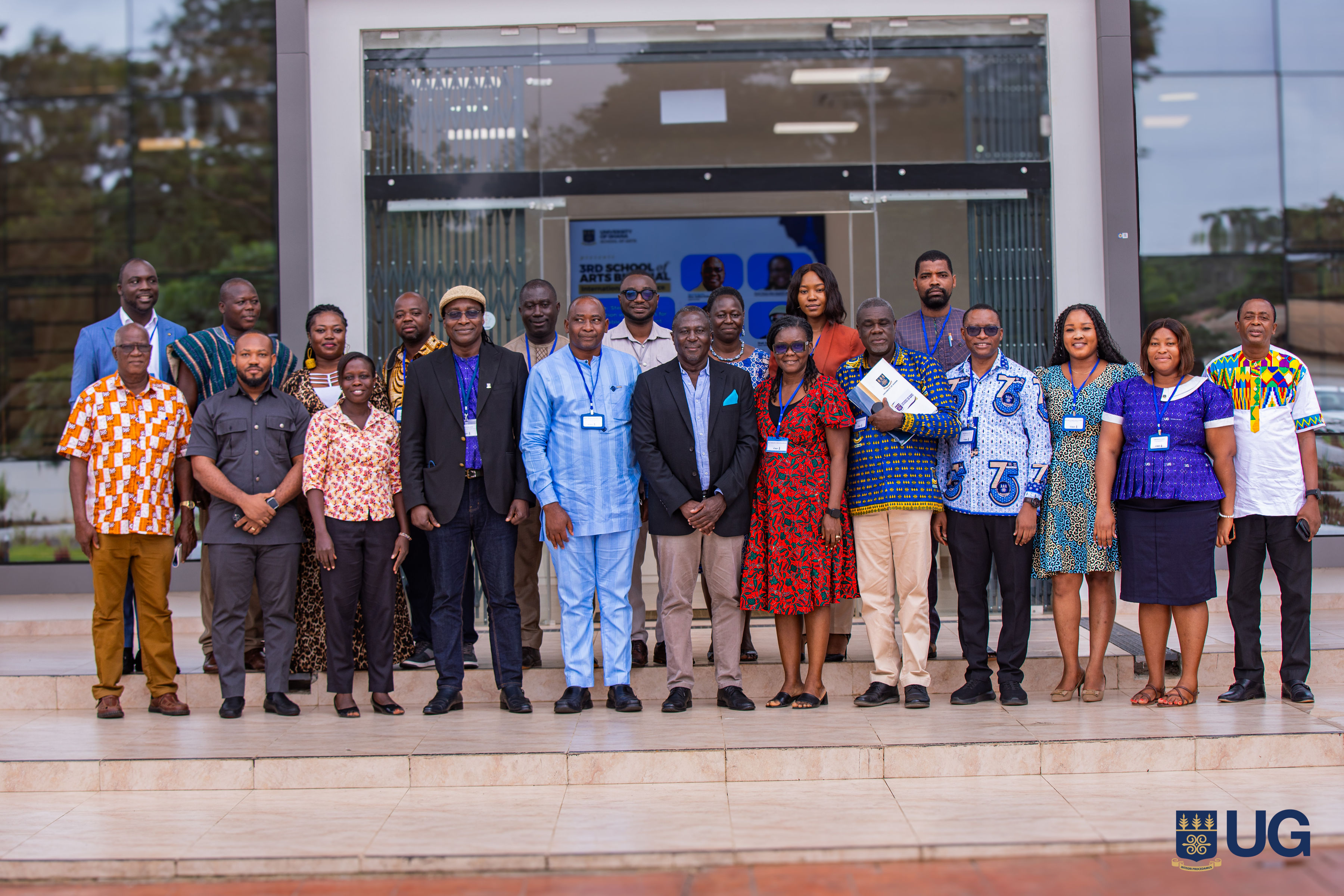School of Arts Holds 3rd Biennial International Conference, Advocates Integration of Arts into STEM for Sustainable Development

The School of Arts of the University of Ghana has held its 3rd Biennial International Conference, calling for the full integration of the Arts into Science, Technology, Engineering and Mathematics (STEM) education to drive sustainable development.
The three-day conference, held under the theme “SteAming – STEM Education with the Arts for Sustainable Development,” brought together academics, researchers and practitioners to discuss the critical role of the Arts in achieving holistic education and innovation.
Opening the conference, the Dean of the School of Arts, Prof. Wazi Apoh, noted that while STEM disciplines receive strong financial and policy support, the Arts face declining funding and attention. He cited global examples of programme closures and policy shifts prioritising science and technology, including Nigeria’s recent suspension of foreign sponsorship for postgraduate studies in the arts and social sciences.
Delivering remarks on behalf of the Vice-Chancellor, Prof. Nana Aba Appiah Amfo, the Provost of the College of Humanities, Prof. Joseph Awetori Yaro, described the Arts as facing a “slow death” from funding cuts and globalisation pressures. He, however, underscored their continued relevance, stating that the Arts foster critical thinking, creativity and employability, skills he noted are essential for sustainable development.
The keynote address was delivered by Prof. George Abungu, Professor of Heritage Studies at the University of Mauritius, who challenged the “false dichotomy” between STEM and the Arts. He highlighted that some of humanity’s greatest innovations, from agriculture to the printing press, were born out of the interdependence of science, technology and the arts.
Throughout the three-day event, participants explored topics such as indigenous knowledge systems, environmental sustainability, history, and women’s empowerment, calling attention to the need for interdisciplinary approaches to address contemporary challenges.
The conference forms part of the University of Ghana’s commitment to impactful research, transformative student experiences and engagement and partnerships, as outlined in its 2024–2029 Strategic Plan.